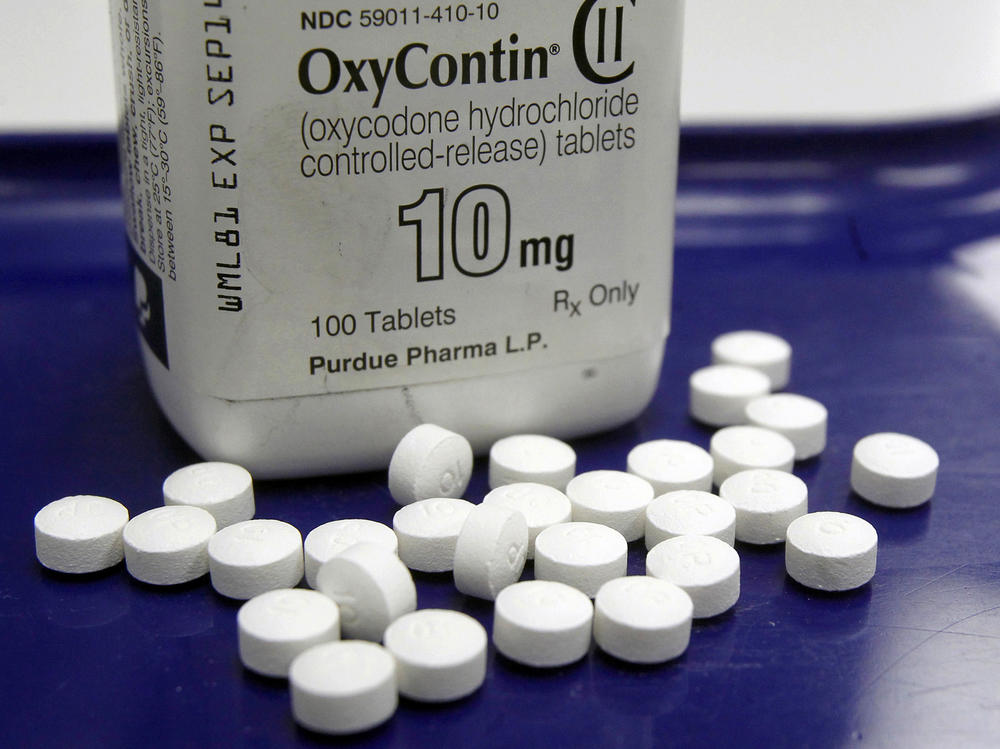Section Branding
Header Content
Consulting Giant McKinsey To Settle States' Opioid Claims For $573 Million
Primary Content
McKinsey & Company has reached a $573 million settlement with nearly 50 state governments as well as the District of Columbia and territories, over its role helping to market and boost sales of high-risk opioids including OxyContin.
Most of the funds will be devoted to paying for treatment and rehabilitation programs in communities devastated by the addiction crisis. As part of the settlement, McKinsey admits to no wrongdoing.
This deal heads off civil lawsuits threatened by state attorneys general.
"Today's agreement sets a new standard for accountability in one of the most devastating crises of our time," said Massachusetts attorney general Maura Healey, in a statement emailed to NPR. "As a result, our communities will receive substantial resources for treatment, prevention, and recovery services."
The settlement follows a rare apology issued by the consulting powerhouse in December, when McKinsey acknowledged its behind-the-scenes work for the opioid industry.
Documents detailing the deal are expected to be filed in state courts on Thursday. The settlement will require court approval.
According to Healey, the company will also be required to make public tens of thousands of internal documents detailing its work for Purdue Pharma and other opioid companies.
In a statement McKinsey said it has reaffirmed its commitment not to advise clients on "any opioid-related business anywhere in the world."
"We chose to resolve this matter in order to provide fast, meaningful support to communities across the United States," Kevin Sneader, global managing partner of McKinsey, said in the statement. "We deeply regret that we did not adequately acknowledge the tragic consequences of the epidemic unfolding in our communities. With this agreement, we hope to be part of the solution to the opioid crisis in the U.S."
According to documents made public as part of bankruptcy proceedings against Purdue Pharma, the maker of OxyContin, McKinsey's helped Purdue "turbocharge" opioid sales at a time when the risks of addiction had been well-documented.
In one internal email sent in July 2018, a McKinsey executive appeared to acknowledge the growing legal risk faced by Purdue Pharma over its opioid business.
"It probably makes sense to have a quick conversation with the risk committee to see if we should be doing anything other that [sic] eliminating all our documents and emails," McKinsey senior partner Martin Elling wrote to another executive at the company.
"As things get tougher here, someone might turn to us," he added.
McKinsey is one of a dozen blue-chip American companies embroiled in the legal, financial and public relations debacle linked to the opioid industry.
While major civil lawsuits against companies such as Johnson & Johnson, McKesson and Walmart have largely stalled because of the pandemic, behind-the-scenes settlement talks have continued.
In October 2020, Purdue Pharma reached a deal with the Justice Department valued by the government at $8.3 billion.
Once seen as a major source of profits for pharmaceutical companies, distributors and retailers, prescription opioid medications contributed to a tsunami of addiction that has left more than 400,000 Americans dead, according to the Centers for Disease Control and Prevention.
The addiction crisis escalated again during the pandemic, linked increasingly to the synthetic opioid fentanyl, with more than 81,000 overdose fatalities last year, according to the CDC.
Copyright 2021 NPR. To see more, visit https://www.npr.org.

